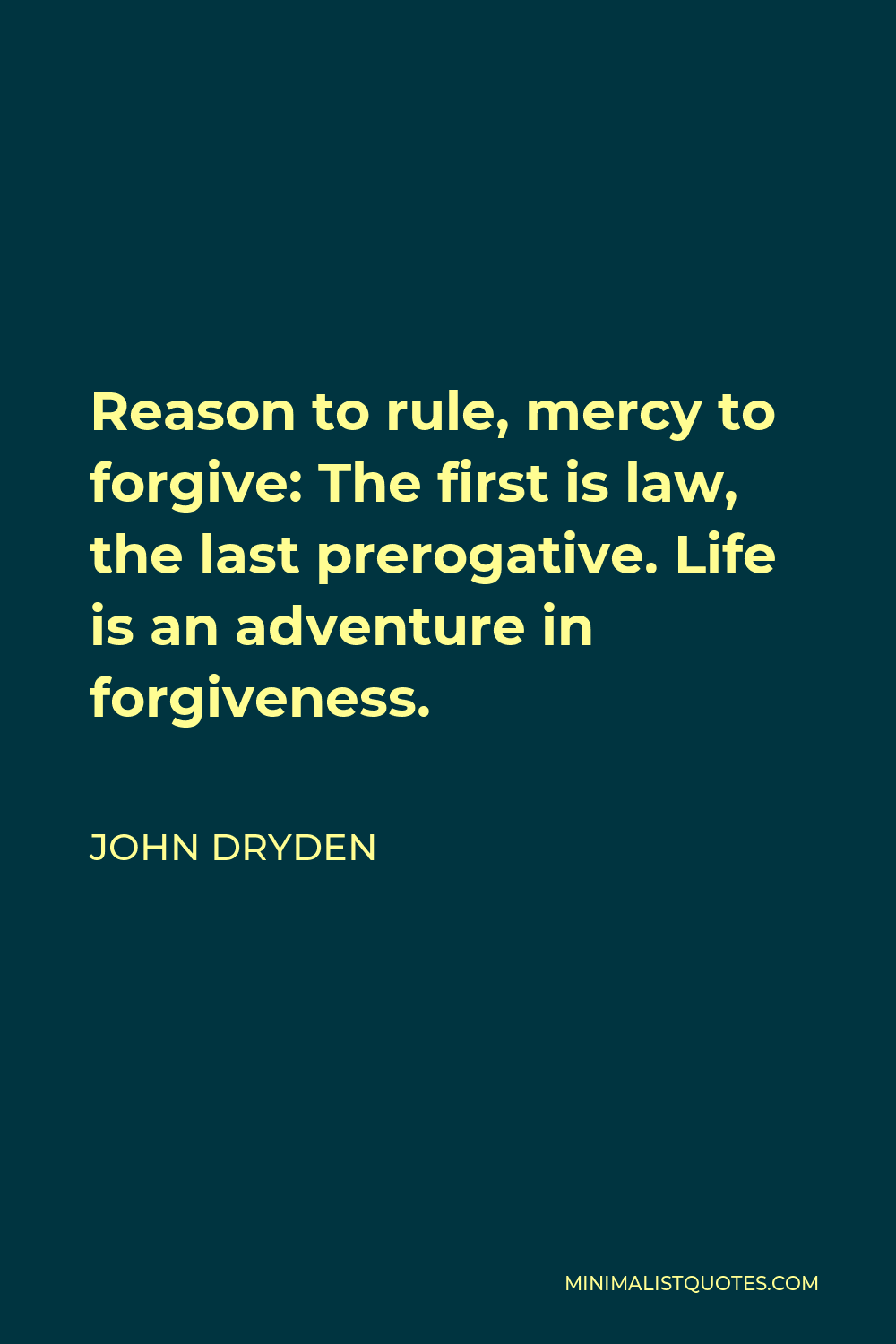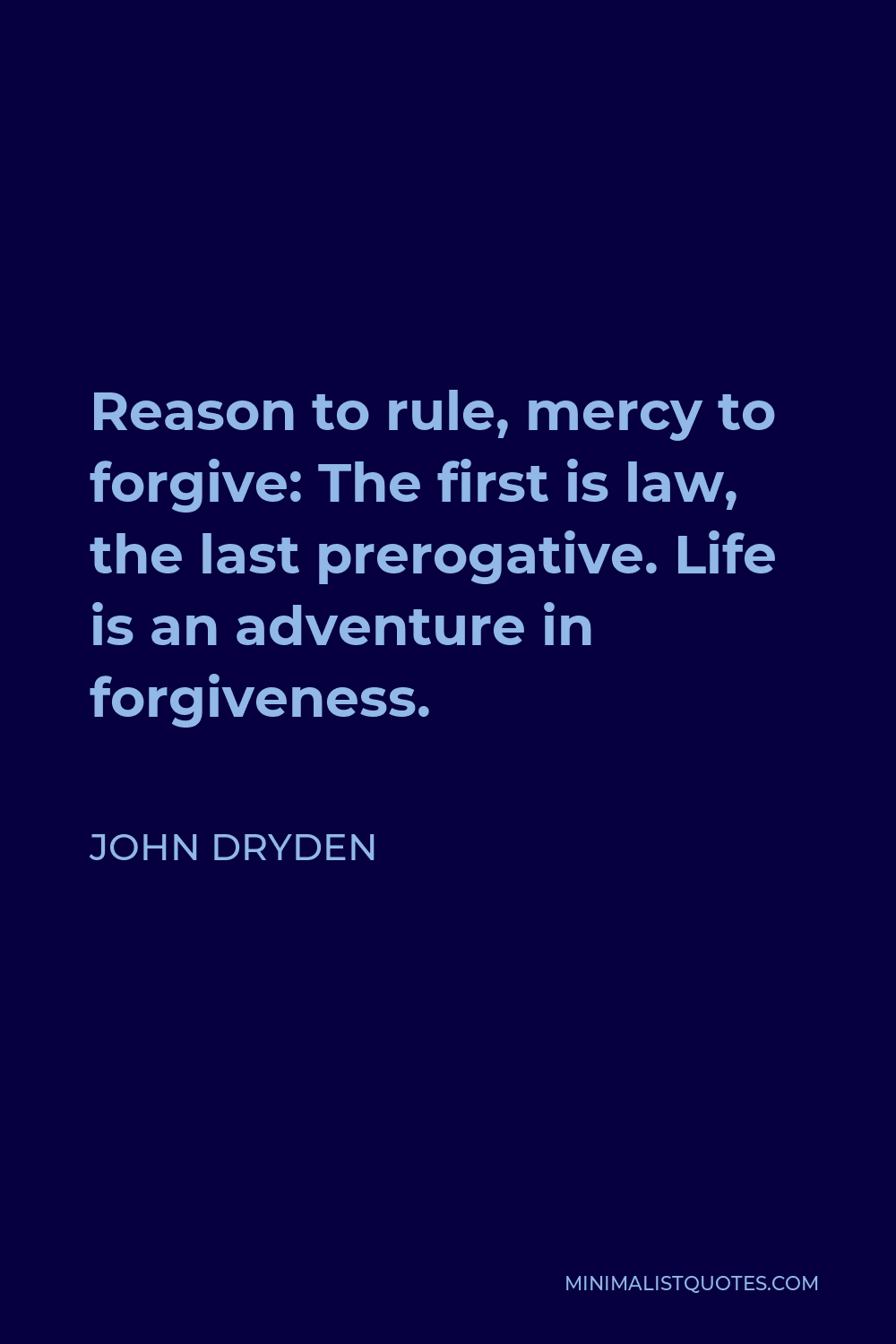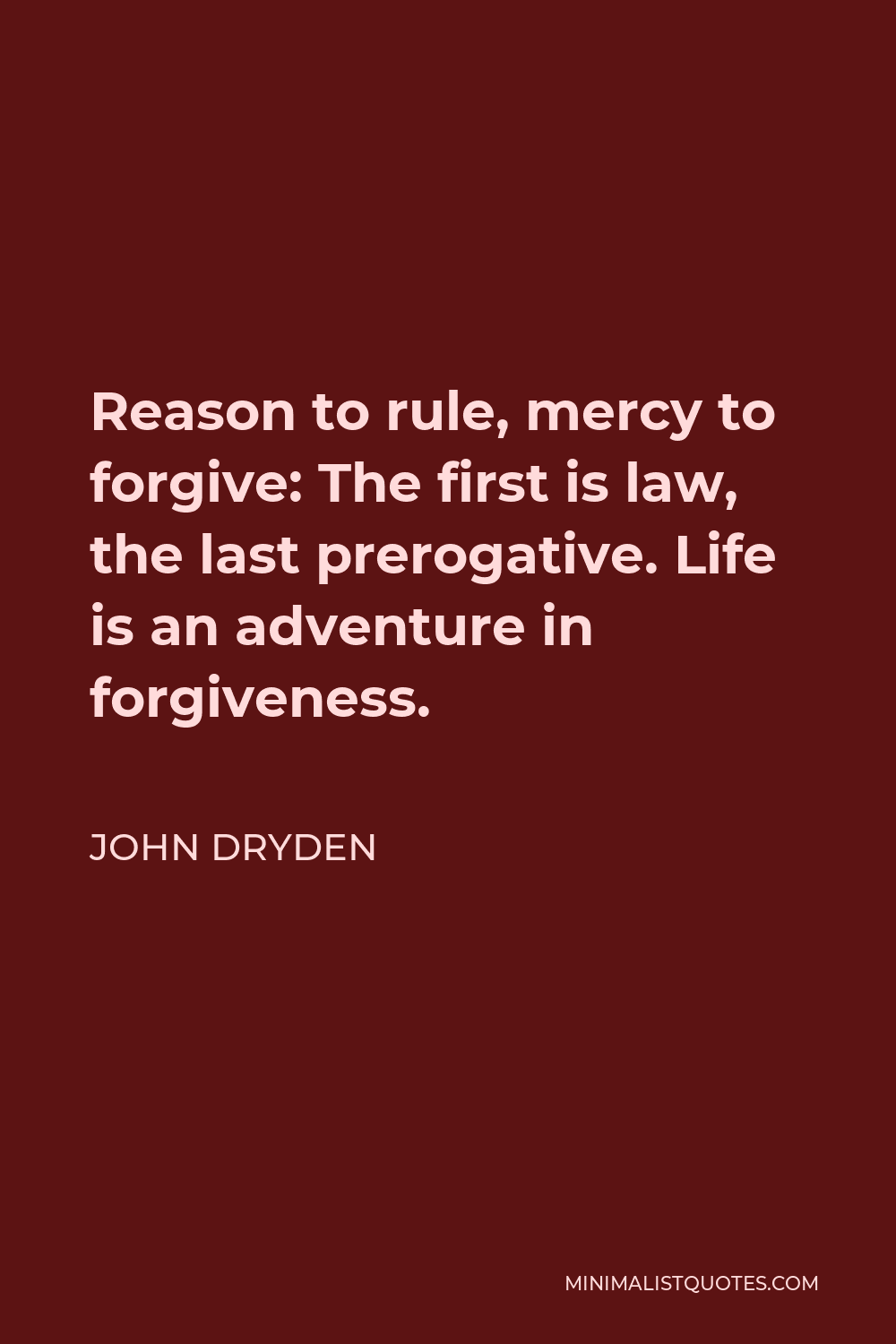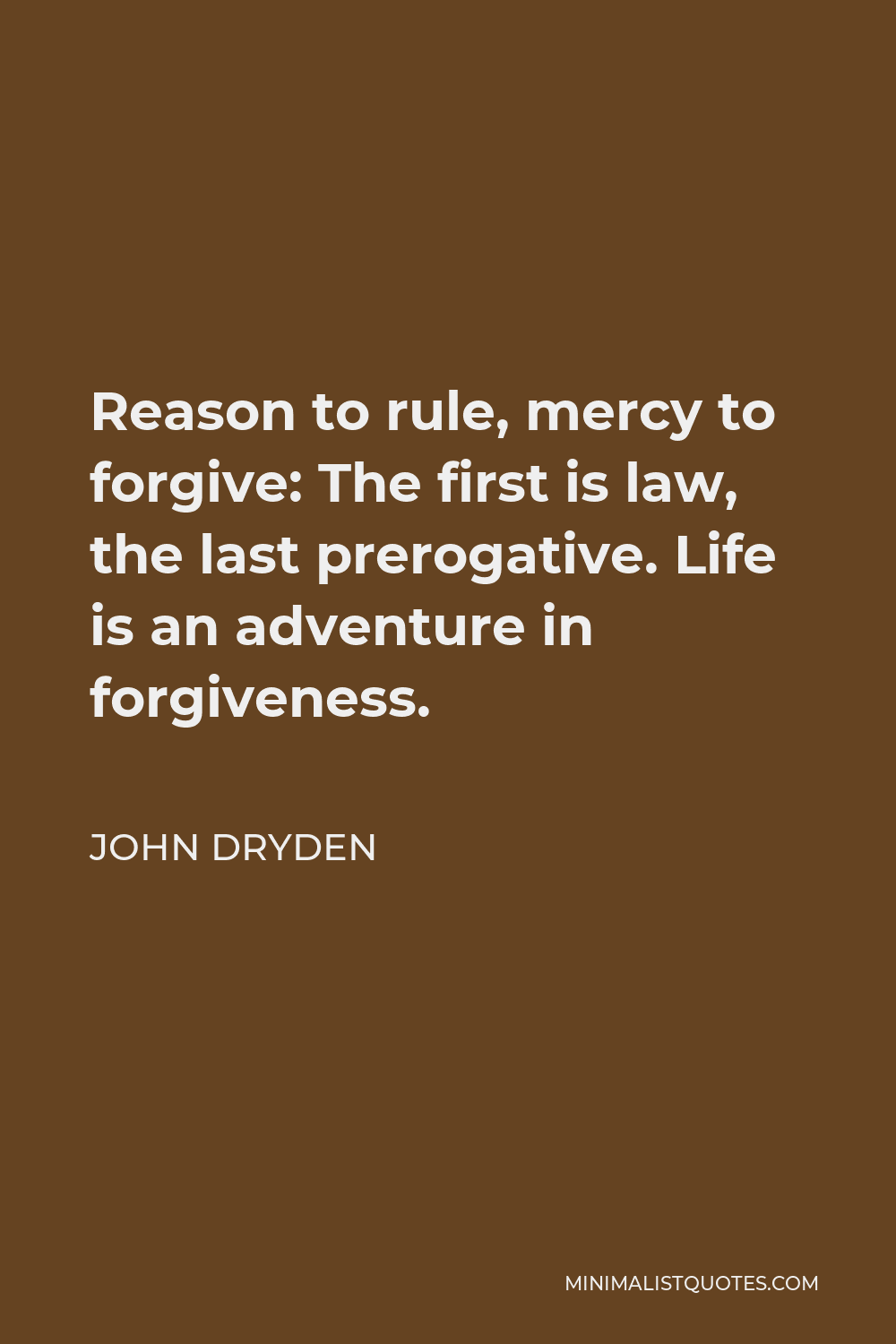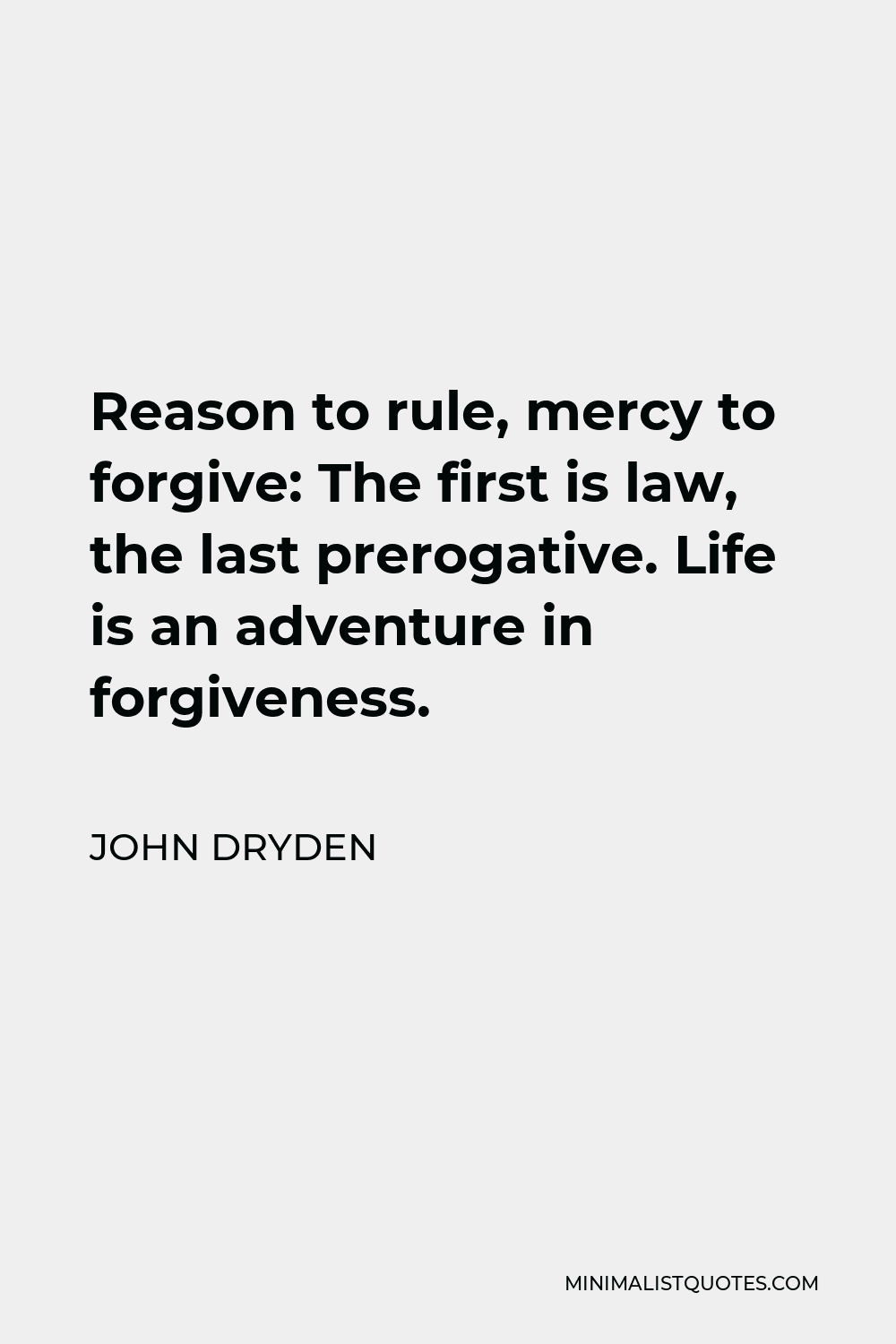But far more numerous was the herd of such, Who think too little, and who talk too much.
JOHN DRYDENReason to rule, mercy to forgive: The first is law, the last prerogative. Life is an adventure in forgiveness.
More John Dryden Quotes
-





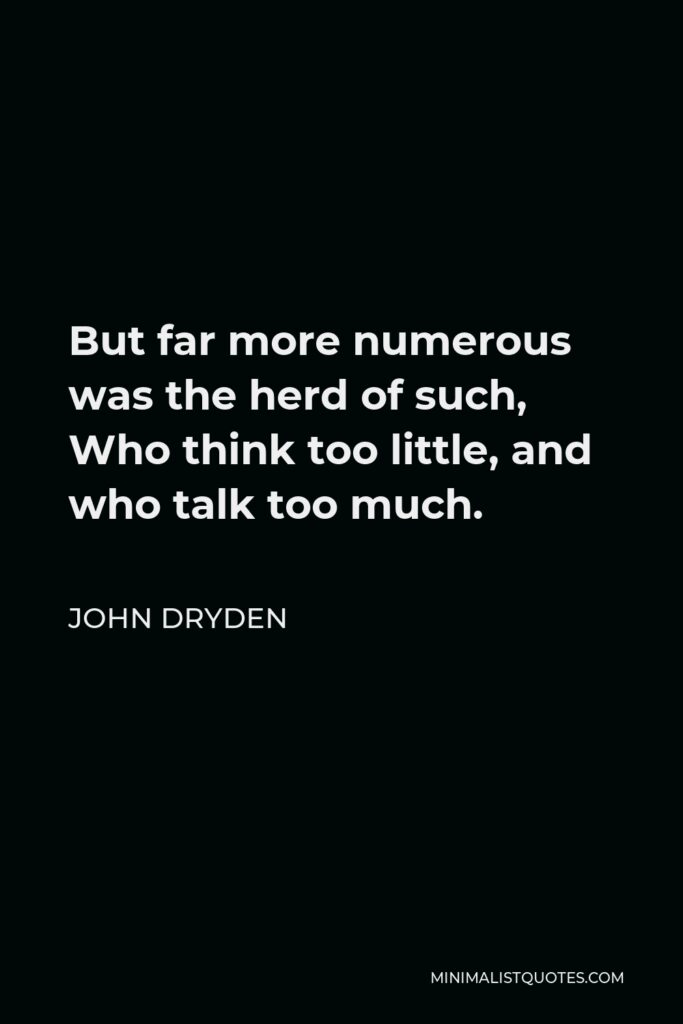

-





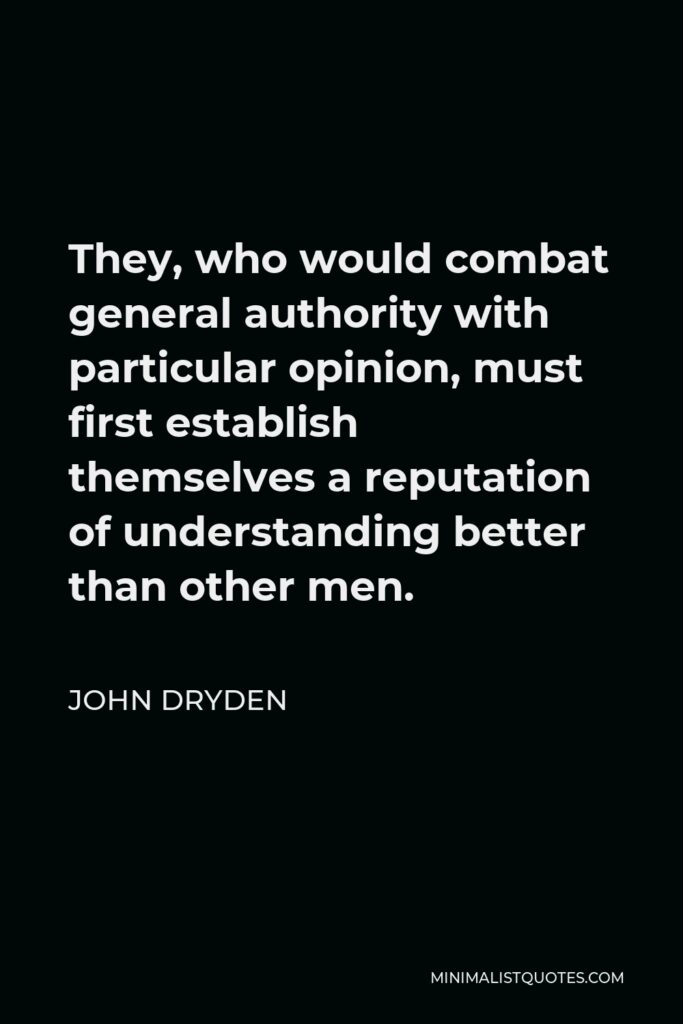

They, who would combat general authority with particular opinion, must first establish themselves a reputation of understanding better than other men.
JOHN DRYDEN -





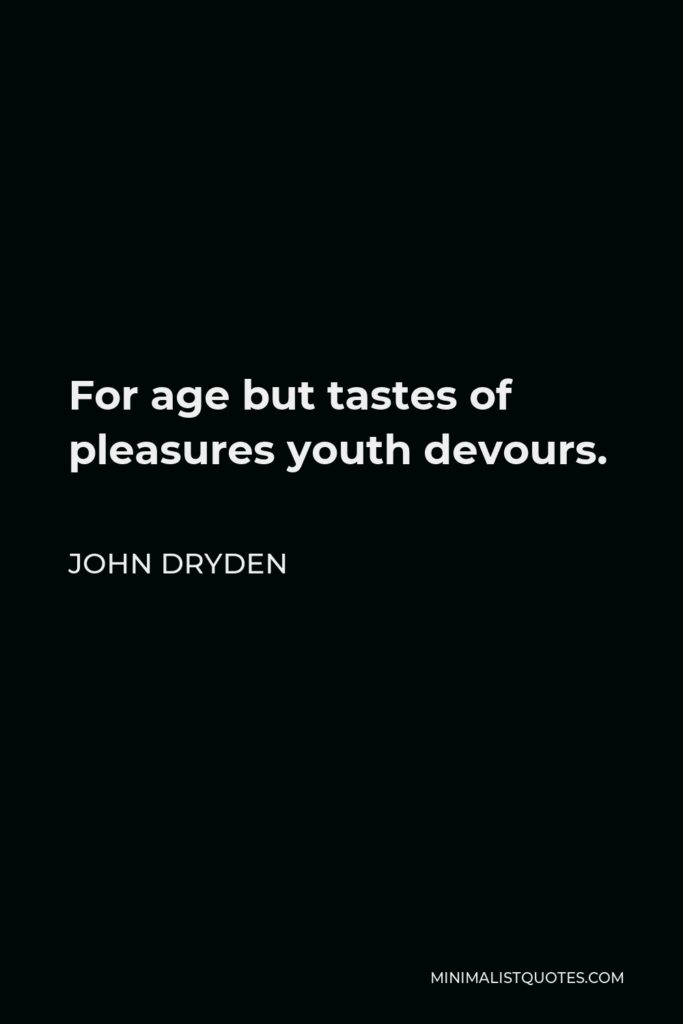

For age but tastes of pleasures youth devours.
JOHN DRYDEN -





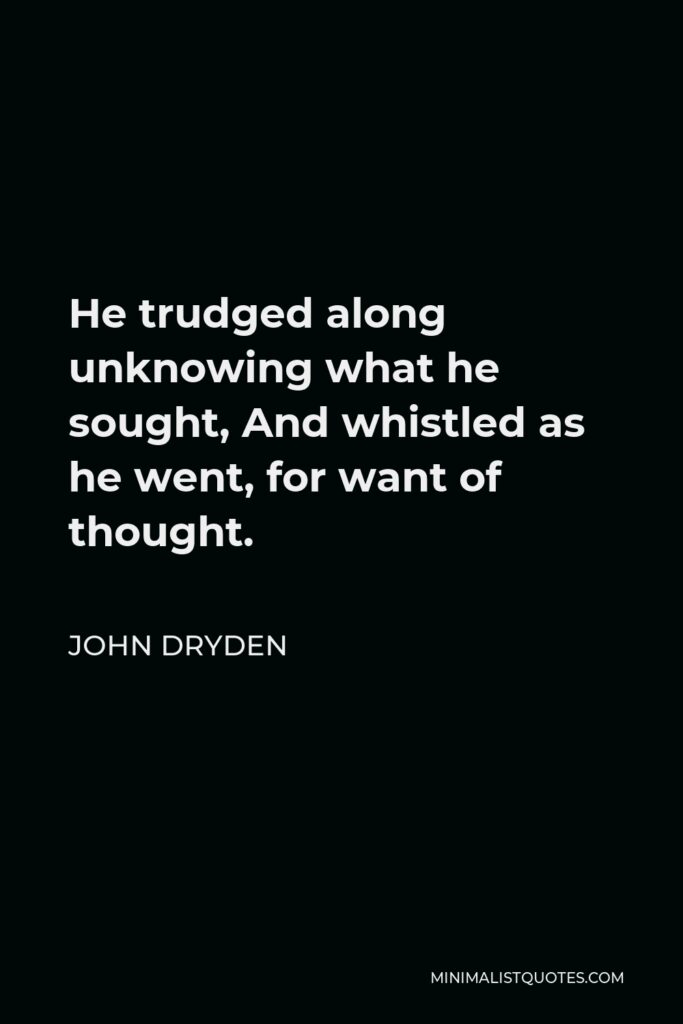

He trudged along unknowing what he sought, And whistled as he went, for want of thought.
JOHN DRYDEN -





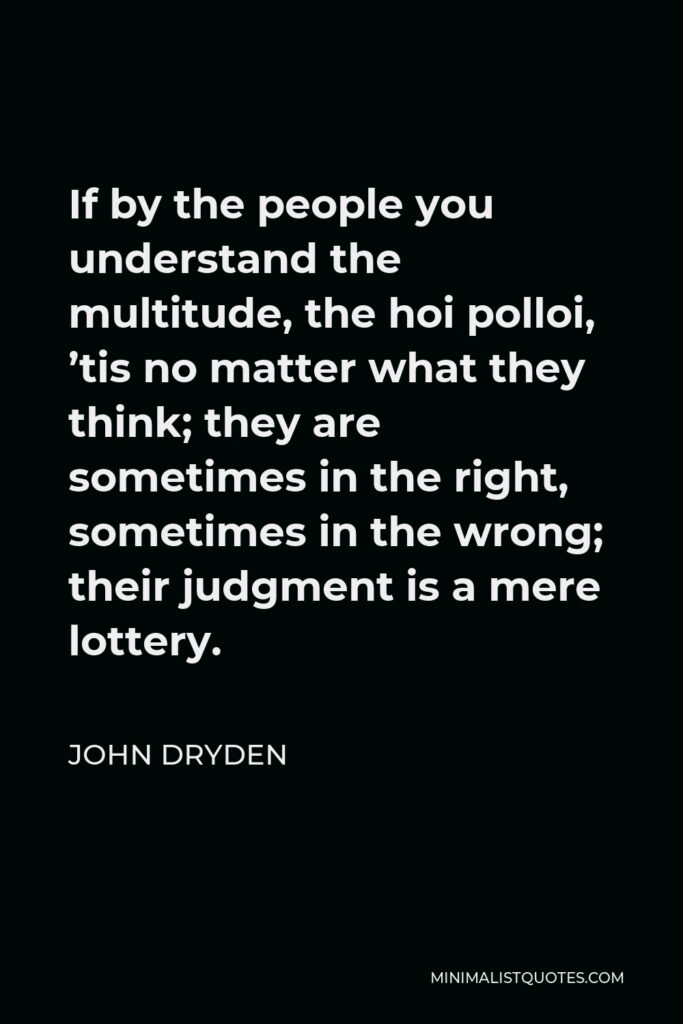

If by the people you understand the multitude, the hoi polloi, ’tis no matter what they think; they are sometimes in the right, sometimes in the wrong; their judgment is a mere lottery.
JOHN DRYDEN -





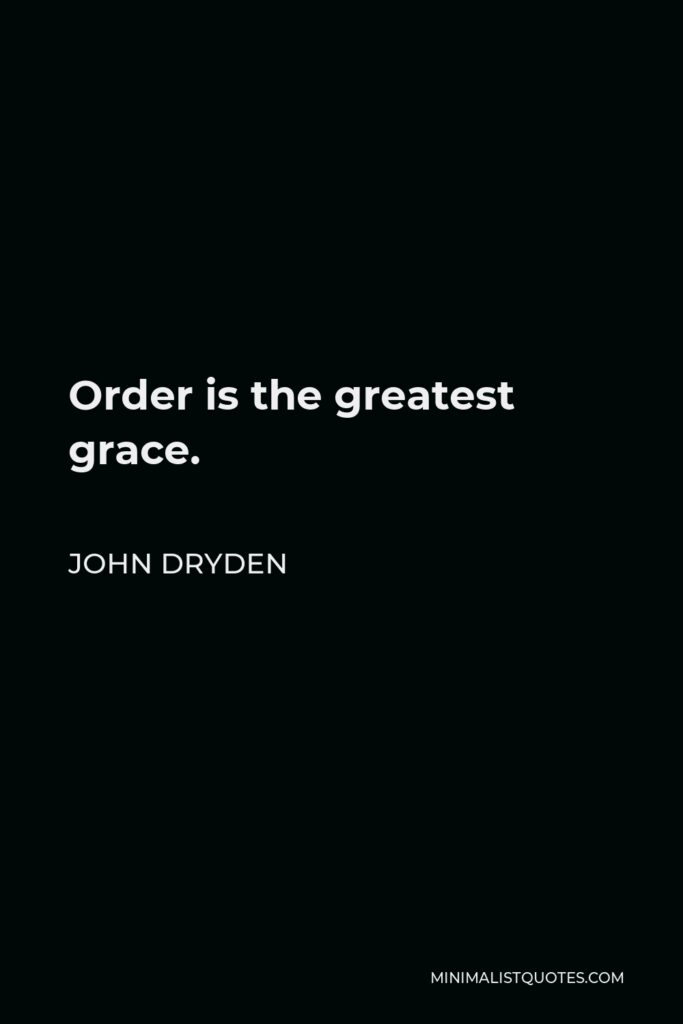

Order is the greatest grace.
JOHN DRYDEN -







Treason is greatest where trust is greatest.
JOHN DRYDEN -





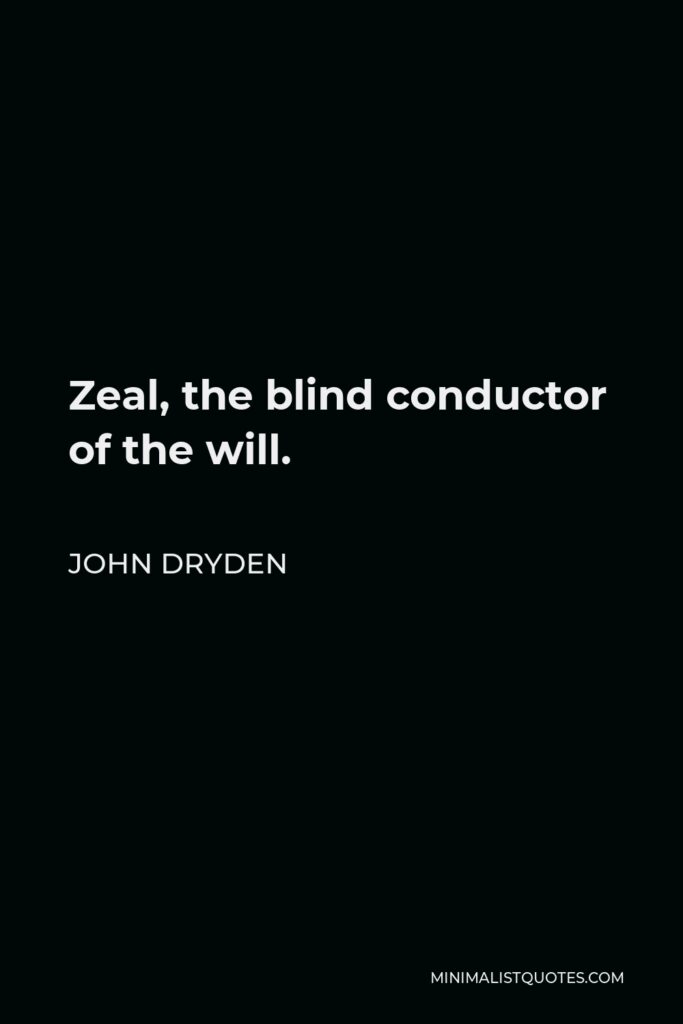

Zeal, the blind conductor of the will.
JOHN DRYDEN -







All, as they say, that glitters is not gold.
JOHN DRYDEN -





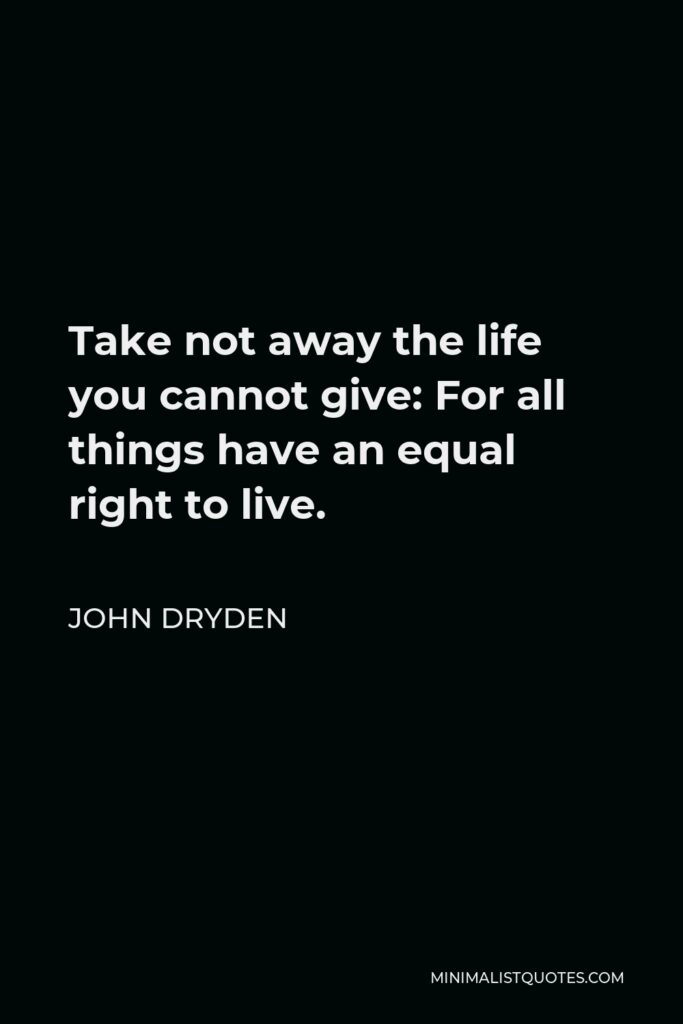

Take not away the life you cannot give: For all things have an equal right to live.
JOHN DRYDEN -







All empire is no more than power in trust.
JOHN DRYDEN -





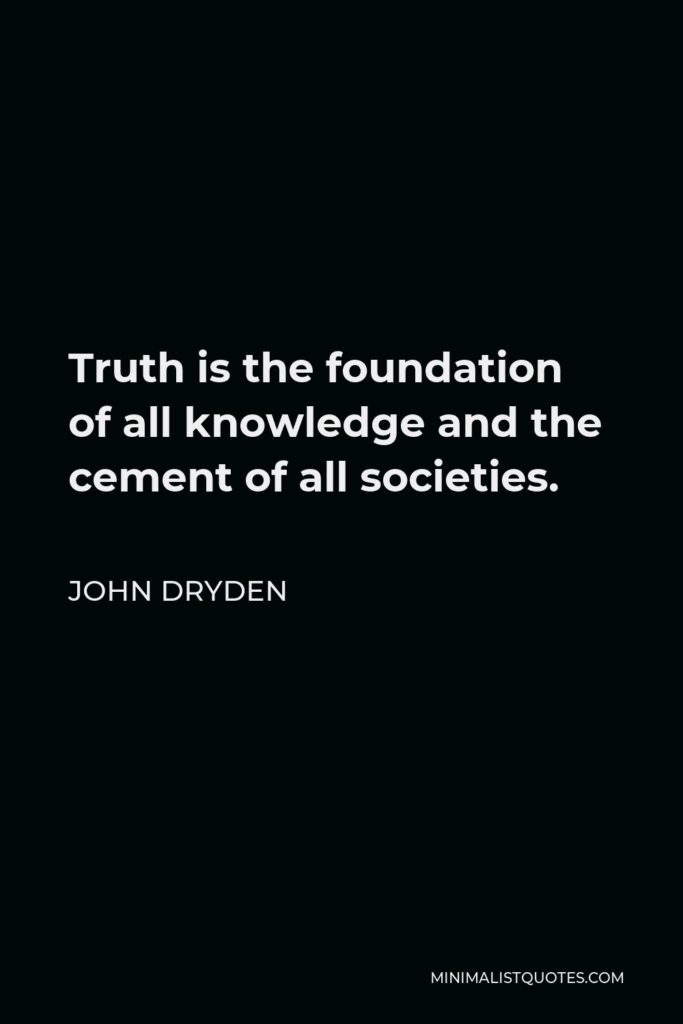

Truth is the foundation of all knowledge and the cement of all societies.
JOHN DRYDEN -





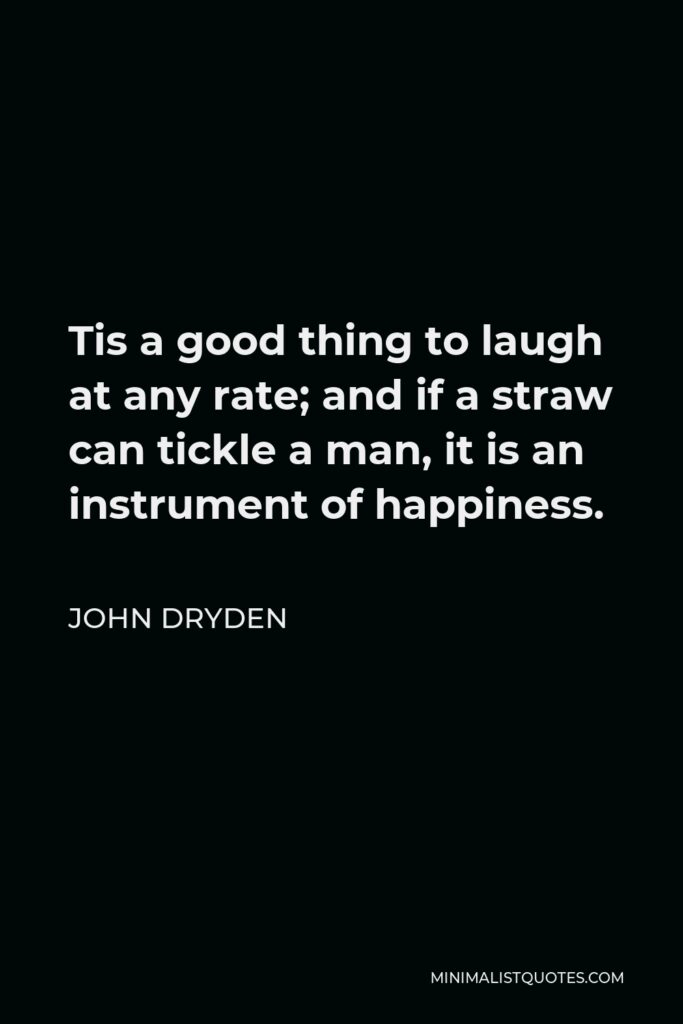

Tis a good thing to laugh at any rate; and if a straw can tickle a man, it is an instrument of happiness.
JOHN DRYDEN -





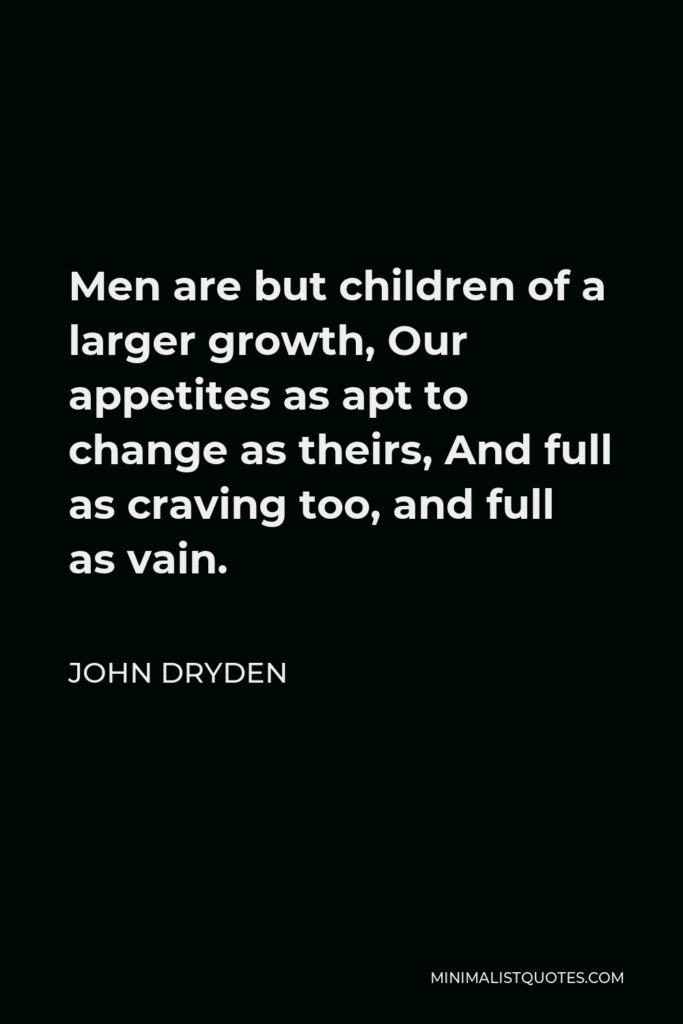

Men are but children of a larger growth, Our appetites as apt to change as theirs, And full as craving too, and full as vain.
JOHN DRYDEN -





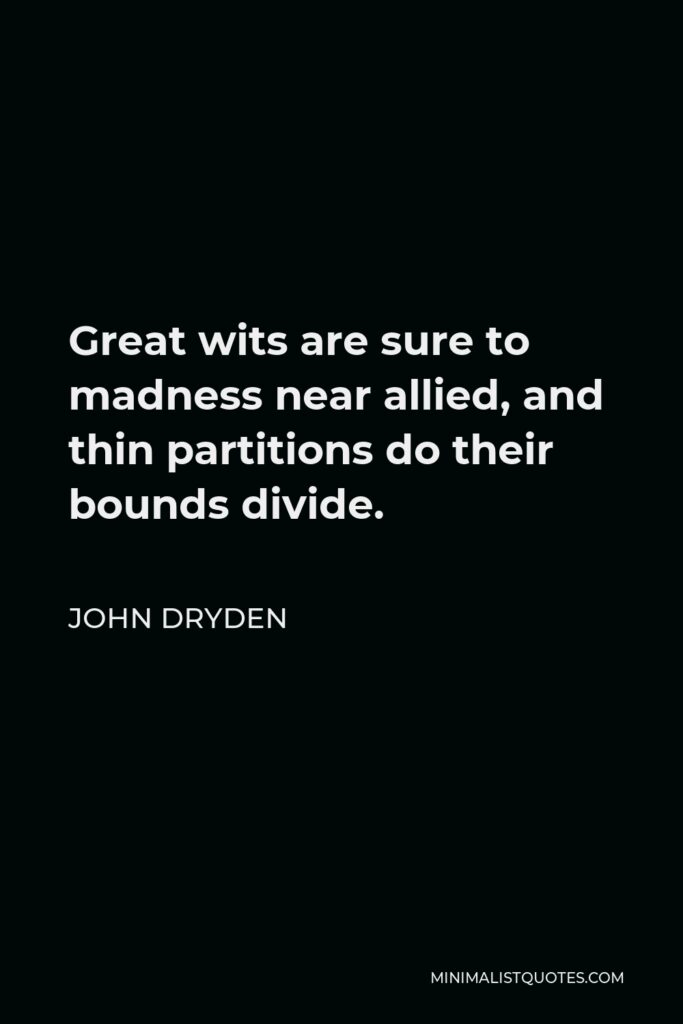

Great wits are sure to madness near allied, and thin partitions do their bounds divide.
JOHN DRYDEN -





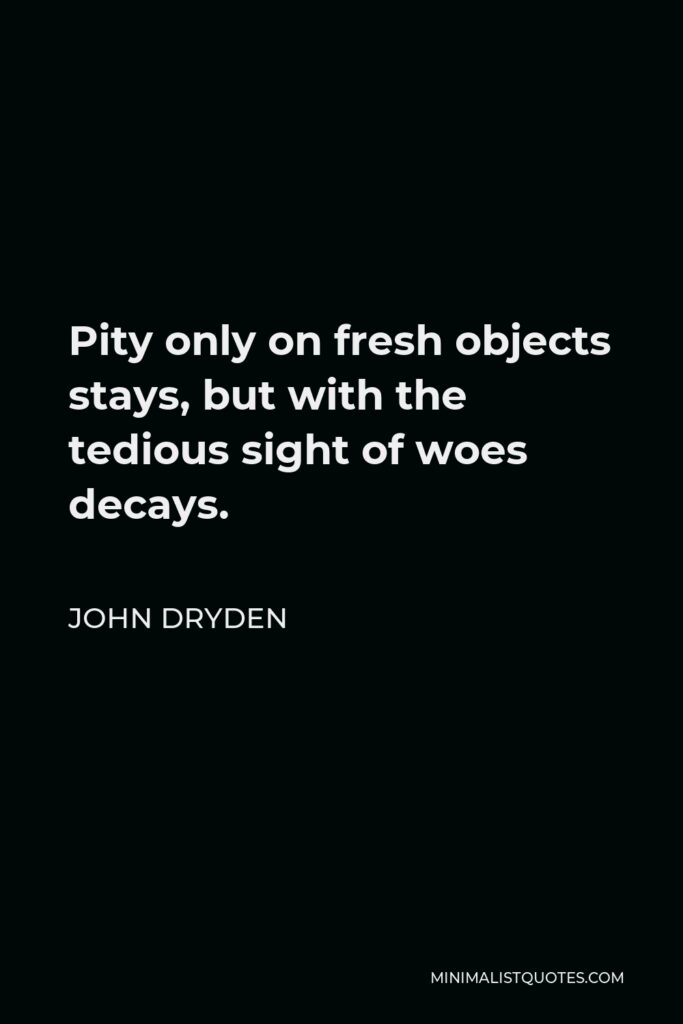

Pity only on fresh objects stays, but with the tedious sight of woes decays.
JOHN DRYDEN

